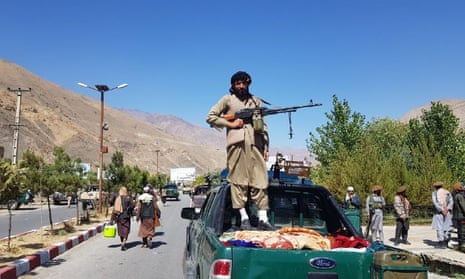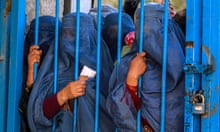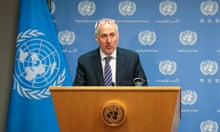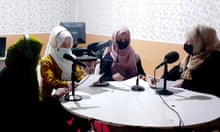The Taliban have been accused of killing 20 civilians in Afghanistan’s Panjshir valley, with the apparent killing of a man in uniform being caught on video.
The Panjshir valley was the last area to hold out against the Taliban when it swept to power last month, and was where anti-Taliban opposition forces briefly rallied before being overrun.
The BBC described one incident caught on video that showed a man wearing military gear surrounded by Taliban fighters who bystanders insisted was a civilian. Amid the sound of gunfire the man is seen slumping to the ground.
According to the report, the BBC said it had heard of 20 similar incidents involving civilians in the area following the Taliban’s takeover.
One of the victims was a shopkeeper and father-of-two called Abdul Sami, who sources said declined to flee during the Taliban’s advance. Arrested and accused of selling sim cards to anti-Taliban opposition fighters his body was later was dumped near his home.
The claim emerged as a senior Afghan diplomat from the former government on Tuesday described a deteriorating human rights situation in his country where he said women’s rights were disappearing under the Taliban.
“The people of Afghanistan need action more than ever,” ambassador Nasir Ahmad Andisha told the UN human rights council in Geneva, calling for the council to create a fact-finding mission to monitor Taliban actions in the country.
The reports follow well documented instances of other reprisal killings by the hardline Islamist group both during their lightning advance across the country and in the aftermath of seizing power.
In August, Amnesty International detailed the massacre of nine ethnic Hazara men after Taliban fighters took control of Afghanistan’s Ghazni province in July.
Witnesses gave harrowing accounts of the killings, which took place between 4 and 6 July in the village of Mundarakht, Malistan district, including how three were tortured to death, including one man who was strangled with his own scarf.
On Monday, the UN high commissioner for human rights, Michelle Bachelet, described “credible allegations of reprisal killings of a number of former ANSF (Afghan National Security Forces) personnel, and reports of officials, who worked for previous administrations and their family members being arbitrarily detained”.
“In some cases, the officials were released, and in others, they were found dead.”
She also cited “multiple” allegations of Taliban house-to-house searches looking for officials from the previous government and “people who cooperated with US security forces and companies”.
Concerns about the Taliban’s breaches of their own promises on human rights come as Qatar warned on Tuesday it would not take responsibility for Kabul airport without “clear” agreements with all involved, including the Taliban, about its operations.
Doha has become a key broker in Afghanistan following last month’s withdrawal of US forces, helping evacuate thousands of foreigners and Afghans, engaging the new Taliban rulers and supporting operations at Kabul airport.
“We need to make sure that everything is addressed very clearly otherwise … we are not able to take any responsibility of the airport (if) all these things are not addressed,” Qatar’s foreign minister, Sheikh Mohammed bin Abdulrahman Al-Thani, said at a press briefing.
“Right now the status is still [under] negotiation.”
Since the US pullout, Qatar Airways planes have made several trips to Kabul, flying in aid and Doha’s representatives and ferrying out foreign passport-holders.
The two-decade US intervention in Afghanistan ended with the hurried airlift of more than 120,000 people from Kabul as the Taliban returned to power.
The US pulled its final troops out of Afghanistan on 30 August, ending its longest war just before the anniversary of the 11 September, 2001 attacks that prompted its invasion.









